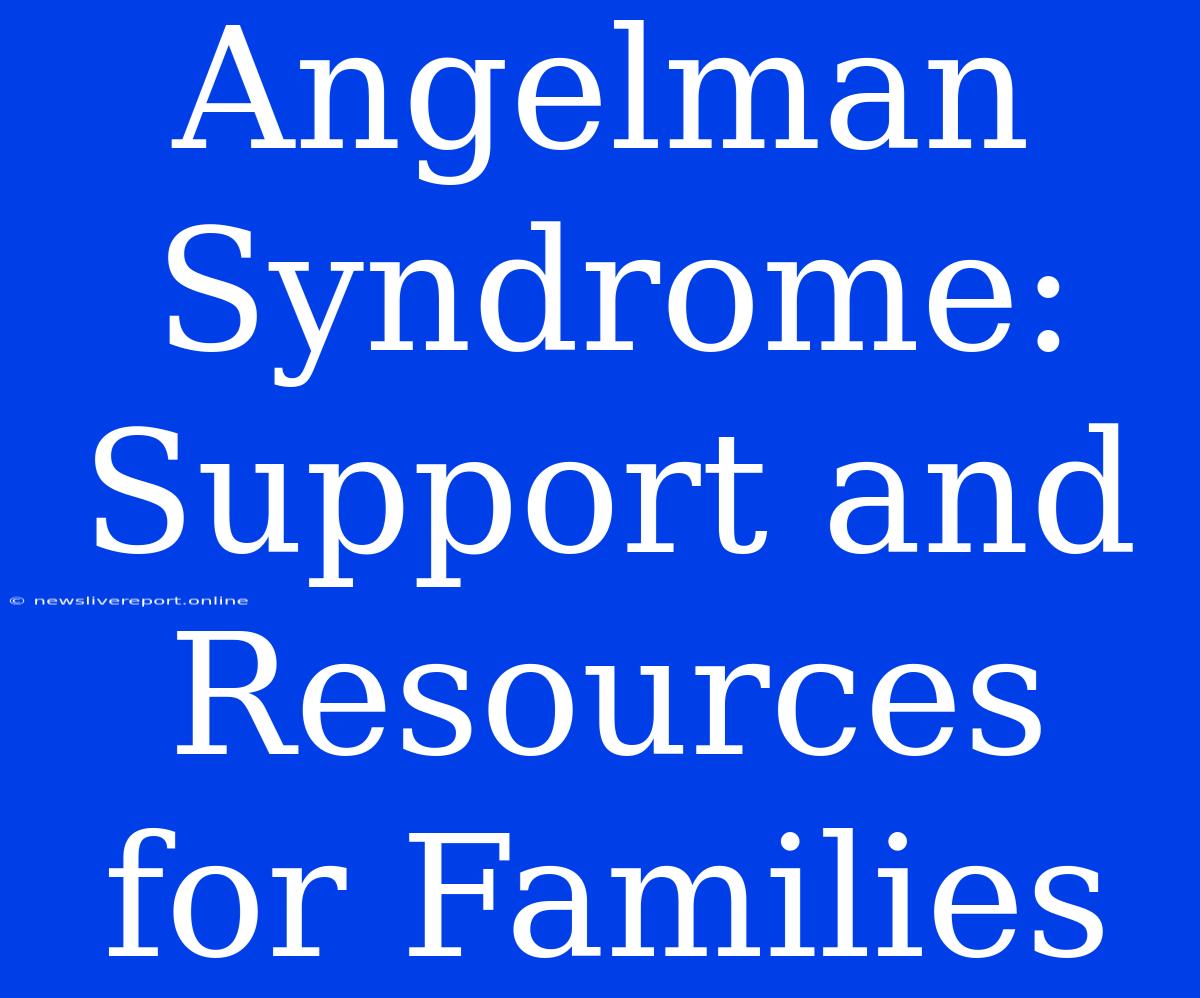Angelman Syndrome: Support and Resources for Families
Angelman syndrome (AS) is a complex genetic disorder that affects the nervous system, resulting in developmental delays, intellectual disability, and characteristic behavioral features. While there is no cure for AS, families can find support and resources to navigate the challenges and celebrate the unique strengths of their children.
Understanding Angelman Syndrome
Angelman syndrome is caused by a deletion or disruption of the UBE3A gene, located on chromosome 15. This gene is responsible for producing a protein that plays a vital role in brain development. The syndrome is characterized by:
- Developmental delays: Children with AS often experience significant delays in speech, motor skills, and cognitive development.
- Intellectual disability: While individuals with AS may have varying levels of intellectual ability, they typically exhibit a range of cognitive challenges.
- Characteristic behaviors: AS is known for its distinctive behaviors, including frequent laughter and smiling, hand flapping, hyperactivity, and an unusual fascination with water.
- Seizures: About 80% of individuals with AS experience seizures, often starting in early childhood.
- Sleep disturbances: Sleep problems, including insomnia and sleepwalking, are common in individuals with AS.
Seeking Support and Resources
Finding support and resources is crucial for families coping with Angelman syndrome. Here are some valuable resources available:
1. The Angelman Syndrome Foundation (ASF): The ASF is a leading organization dedicated to research, advocacy, and support for individuals with AS and their families. They provide:
- Information and resources: The ASF website offers comprehensive information about AS, including symptoms, diagnosis, treatment options, and research updates.
- Support groups: The ASF connects families through local support groups, providing a platform to share experiences, ask questions, and offer mutual support.
- Advocacy efforts: The ASF advocates for policies and funding that benefit the AS community.
2. National Angelman Syndrome Foundation (NASF): The NASF is another reputable organization that offers a range of resources for families:
- Family support network: The NASF provides a network of support for families, including online forums, a helpline, and educational materials.
- Research funding: The NASF supports research initiatives aimed at understanding AS and developing potential treatments.
- Educational resources: They offer educational materials and workshops for families, professionals, and the broader community.
3. Local support groups: Many communities have local support groups for families with AS. These groups provide a safe space for families to connect with others who understand the challenges they face.
4. Medical professionals: Working with a team of qualified medical professionals is essential for managing the complex needs of individuals with AS. This may include:
- Neurologists: To manage seizures and other neurological conditions.
- Developmental pediatricians: To monitor developmental progress and provide support for developmental delays.
- Therapists: To provide speech therapy, physical therapy, occupational therapy, and behavioral therapy.
Navigating Challenges and Celebrating Strengths
Living with Angelman syndrome presents unique challenges for families. Here are some tips:
- Embrace early intervention: Early intervention services can help children with AS reach their full potential.
- Focus on strengths: Celebrate the unique strengths of individuals with AS, such as their infectious laughter, social skills, and love of life.
- Connect with other families: Connecting with other families through support groups can provide invaluable support and encouragement.
- Seek professional guidance: Don't hesitate to seek guidance from medical professionals and therapists.
Angelman syndrome is a complex condition, but with the right support and resources, families can navigate the challenges and celebrate the unique lives of their children with AS. Remember, there is a community of individuals, families, and professionals who are here to help.

